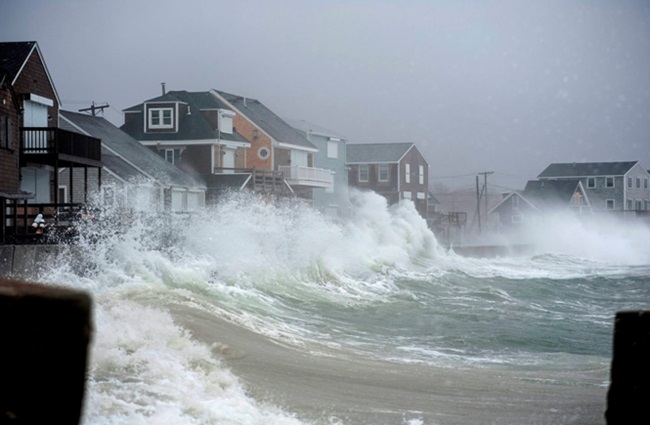Why in the news?
The United States is bracing for heavy rains as a powerful "bomb cyclone" heads toward the country's west coast.

Key points:
- According to weather experts, the bomb cyclone will combine with a Category 5 atmospheric river to make it the most powerful storm of its kind.
- The storm is likely to dump about 8 trillion gallons of water.
- It will not only bring heavy rains but also hurricane-force winds.
- The epicenter of the stormy conditions is likely to be around Vancouver Island in Canada to the Oregon-California border.
- It can potentially cause widespread destruction in several states:
- Widespread flooding
- Devastating landslides
- Large-scale destruction of infrastructure
What is a 'bomb cyclone'?
- This cyclone is an intense mid-latitude cyclone with low air pressure at its center.
- The term comes from the meteorological term "bombogenesis."
- Bombogenesis occurs when a mid-latitude cyclone located between the tropics and polar regions strengthens dramatically in 24 hours.
- This intensification is marked by a sharp drop in atmospheric pressure (at least 24 millibars in a day).
- These cyclones form when warm, moist air collides with cold Arctic air, creating an unstable mixture that promotes explosive storm development.
- For this reason, meteorologists in the 1980s coined the term "bomb cyclone," drawing a comparison between the rapid intensification of a hurricane and the explosion of a bomb.

 Contact Us
Contact Us  New Batch : 9555124124/ 7428085757
New Batch : 9555124124/ 7428085757  Tech Support : 9555124124/ 7428085757
Tech Support : 9555124124/ 7428085757







